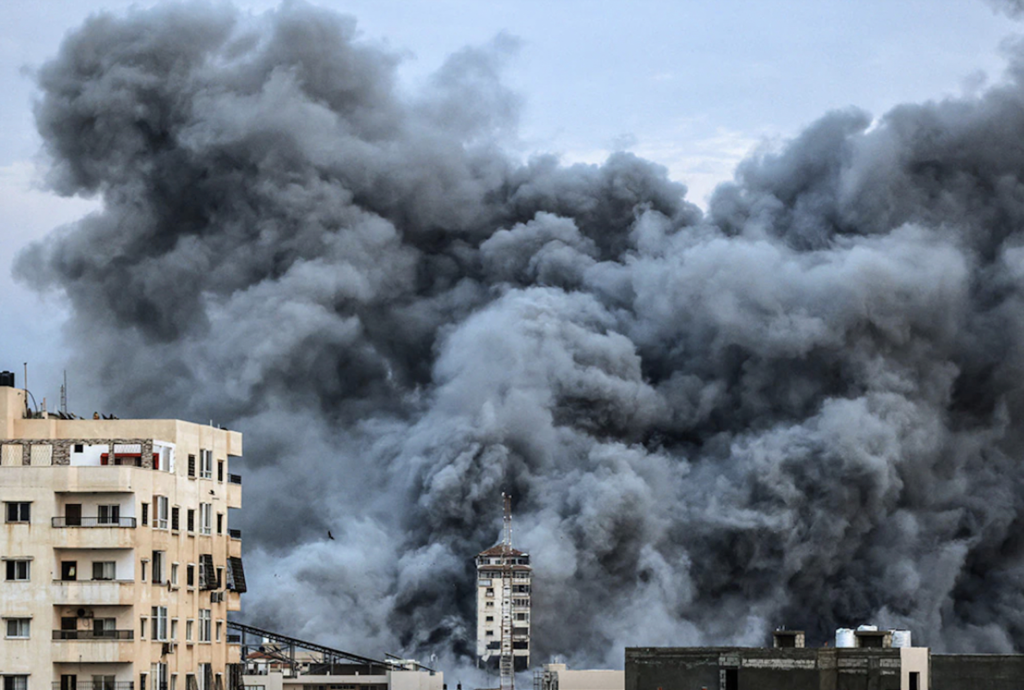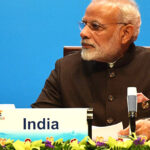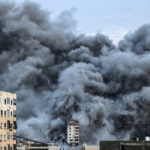
While the conflict between Hamas and Israel has polarized public opinion, its effects on foreign policy in Southeast Asia have been minimal, for now. Reflective of ASEAN’s religious and cultural diversity, countries in the region have maintained a business-as-usual approach, while carving out distinct, condemnatory positions after Hamas’ initial attack on Israeli civilians and Israeli Prime Minister Benjamin Netanyahu’s planned assault on Hamas through the heart of Gaza, where 1.1 million people are being asked to evacuate.
Thailand and the Philippines are representative of a foreign-policy balancing act, where the evolving conflict has resulted in the widespread condemnation of violence, but with some rhetorical reservations.
For example, the Philippines condemned violence “against civilian populations,” but recognized Israel’s right “to self-defense in the light of external aggression as recognized in the United Nations Charter.”
Thailand walked an even finer line, with Foreign Minister Parnpree Bahiddha-Nukara noting that “Thailand is not condemning any side, because we do not know the truth about the political climate between [Palestine and Israel], but we strongly condemn the use of violence.”
Thai-Israeli relations

Under its previous authoritarian government, Thailand has long worried about the prospects of terror attacks from multiple fronts, including from Iranian groups seeking to target Israelis living or visiting the kingdom. Bangkok now worries about Thai tourists still in Israel and the more than 20,000 Thai workers who are essential to Israel’s agricultural sector.
The death toll of Thais, who had one largest groups of foreign workers in the country, stood at 29 early this week, with 18 taken captive.
For Thai-Israeli relations, it’s partially a supply and demand-type relationship, with Thai farm laborers seeking work in parts of the country as Israel is usually at a lack of semi-skilled agricultural labor and it is common for Thais to believe that wages abroad can be considerably higher than at home, evidenced by remittances to families at home.
However, the recent violence has exposed some of the harsh conditions and poor wages that many Thai workers have contended with. In the short term, Israel’s current political instability and its war footing will put a damper on economic exchanges between the two countries, with missing workers still on the minds of Thai people.
While Israel is only Thailand’s 40th-largest trading partner, trade between the two countries grew 1.15% this year to US$857 million. Israel is also an established regional arms dealer, with the Royal Thai Navy in 2022 buying seven $112 million “killer” Hermes 900 drones from Israeli firm Elbit Systems.
Now common across Southeast Asia, Israeli defense products have made their way into Myanmar, Vietnam and the Philippines, while Thailand has upped its purchases since 2010 to include unmanned aerial vehicles (UAVs), Python-4 missiles, and heavy arms, such as the Elbit-built 155-millimeter self-propelled gun.
As much as Israeli investment, agricultural development, and economic opportunities dominate bilateral relations, Thailand must also walk a fine line, as its restive southern region, home to a majority-Muslim population, who have actively supported the Palestinian cause, from demonstrations in Pattani in 2014 after Operation Protective Edge killed more than 2,300 Palestinians in Gaza.
Multiple reports suggest pro-Palestinian demonstrations are possible in the deep south, namely Pattani, Narathiwat, Songkhla and Yala provinces.
Prime Minister Srettha Thavisin has begun to moderate Thailand’s position further in the aftermath of the attack on a hospital in northern Gaza, posting on X, the social-media platform formally known as Twitter, “I am shocked and distressed to hear about the tragedy at al-Ahli Arab Hospital in the North of Gaza last night.
“I pray for the families of those grieving their loved ones. There is no justification for harming innocent civilians during conflict. International humanitarian law must be respected.”
Philippines cautious
Manila, on the other hand, has also been illustrating a cautious and pragmatic stance. The Philippines and Israel share friendly and historic ties, and there has been a push from both countries to enhance the scope of their bilateral relationship in areas of trade, innovation, and technology.
Interpersonal ties lie at the heart of the bilateral partnership, which can be traced back to when Manila opened its doors to Holocaust refugees in late 1930s.
Manila is also no stranger to violence committed by militant and insurgent groups. Its National Security Council also recently confirmed that two alleged operatives of Hamas tried to operate in the country in 2018 and 2022, while also attempting to join forces with local insurgent groups.
This confirmation came at a time when three Filipinos lost their lives when Hamas attacked Israel. At the time, there more than 130 Filipinos in Gaza.
It is against this backdrop that Manila has emphasized its overt support for Israel, while also condemning the attacks by Hamas on the civilian population. In fact, National Security Adviser Eduardo Año also noted that the Anti-Terrorism Council would endeavor to designate Hamas under the Anti-Terrorism Act.
This was also followed by a show of solidarity for Israel by hundreds of Filipino Christians from different church organizations. However, it is likely that such shows of support will be guided by prudence and rationality due to economic and socio-political factors.
While Manila’s support for Israel is largely symbolic, the potential repercussion for Philippine interests will be large if the conflict escalates further.
Though the National Economic and Development Authority (NEDA) stated that the economic impacts of the ongoing conflict are negligible, it must be noted that Israel is geographically positioned at a transit route for trade and the movement of overseas Filipino workers (OFWs) in the West Asian region.
Moreover, if the conflict spills over throughout the entire region, the well-being of more than 2 million OFWs will be in peril. The Philippines will also have to monitor continuously any possible security crises within its borders.
Accordingly, since the renewed Israel-Hamas conflict, Manila has put its security forces on high alert due to the possibility of militant groups seeking to replicate such attacks in the country.
Philippine Secretary of Defense Gilbert Teodoro warned of domestic “ISIS spinoffs” that may try to imitate the attack format of Hamas. Moreover, Manila is also cautious of sentiments of its Muslim population, largely situated in Mindanao.
In fact, on October 16, more than 12,000 Muslim Filipinos protested against Israel’s military offensive in Gaza. As the motorcade saw a wave of Palestinian flags being raised, Manila will have to be balanced in navigating the sentiments of Muslim Filipinos in its public statements at the international level.
Among Southeast Asian states, citizens of Thailand and the Philippines have been closely following news abroad amid the intensifying conflict in Gaza, and as long as large numbers of Filipino and Thai workers remain at risk, both workers seeking opportunities abroad their home governments will need to weigh their options pragmatically in the near term.
Co-authored with Don McLain Gill, a Philippines-based geopolitical analyst and a lecturer at the Department of International Studies, De La Salle University (DLSU).






